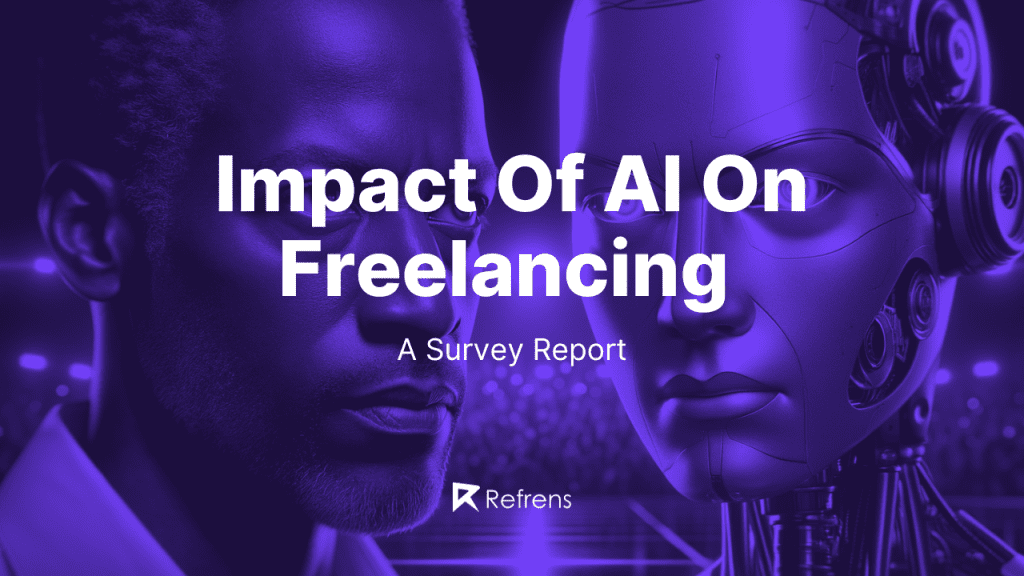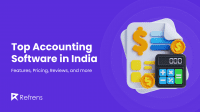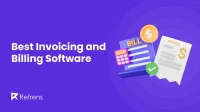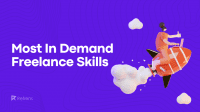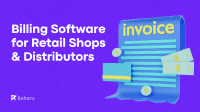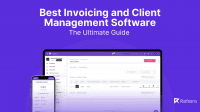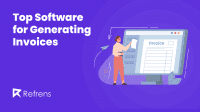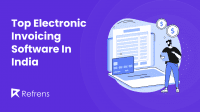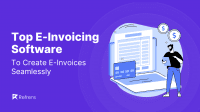Artificial intelligence (AI) is rapidly transforming the nature of work across industries, and the freelance world is no exception. While some argue that AI is a powerful tool that can enhance productivity for freelancer and open up new opportunities for them, others fear that it could lead to job displacement and ultimately undermine the gig economy.
As freelancers navigate this brave new world of AI-powered work, they are asking themselves a crucial question: is artificial intelligence a friend or foe to those who make their living as independent workers?
To get to the root of this question, we conducted a survey of 1600 freelancers on Refrens. The survey is an attempt to understand the general sentiment among freelancers about the impact of AI on the future of freelancing.
How Often Do Freelancers Use AI Tools?
Our survey revealed that AI is already a significant part of the freelance work landscape, with 47% of respondents reporting that they use AI-powered tools on a daily basis.
“Whenever I hit writer’s block, I log in to ChatGPT. And tell you what? It works!”
Linkee Arora, A Freelance Content Writer
Another 36% indicated that they use AI-powered tools once or twice a week, while 11% said they use them occasionally. Surprisingly, 6% of freelancers reported that they have not yet used any AI tools in their work.
These results suggest that AI is already having an impact on the freelance industry and that freelancers who are not yet using AI tools may be missing out on opportunities to enhance their productivity and competitiveness.
Impact Of AI On Freelancing – General Sentiment
To gain a better understanding of how freelancers view the impact of AI on their work, we asked them directly about their expectations.
Of the respondents, 52% believed that AI would have a positive impact on their work and make them more productive. However, 31% said they were still unsure or lacked sufficient information to make an informed decision. On the other hand, 17% expressed concern that AI would ultimately take away their job.
“I feel like in 5 years, the kind of projects that clients outsource to freelance designers will be vastly different. And there’s a lot of anxiety currently around that.”
Yomika Jodhani, A freelance designer
These mixed sentiments highlight the need for a deeper conversation on the role of AI in the future of work and the importance of addressing the fears and concerns of freelancers who may be at risk of job displacement due to technological advancements.
Profession-wise Impact
Our survey found that the freelancers who were most concerned about the impact of AI on their jobs were primarily working in fields such as blog writing, copywriting, proofreading, SEO writing, virtual assistance, research assistance, translation, logo designing, data analysis, product photography, modeling, and paralegal work.
On the other hand, those who were more optimistic about the potential benefits of AI tended to work as full-stack designers, marketing consultants, brand strategists, content creators (influencers), interior designers, and software developers.
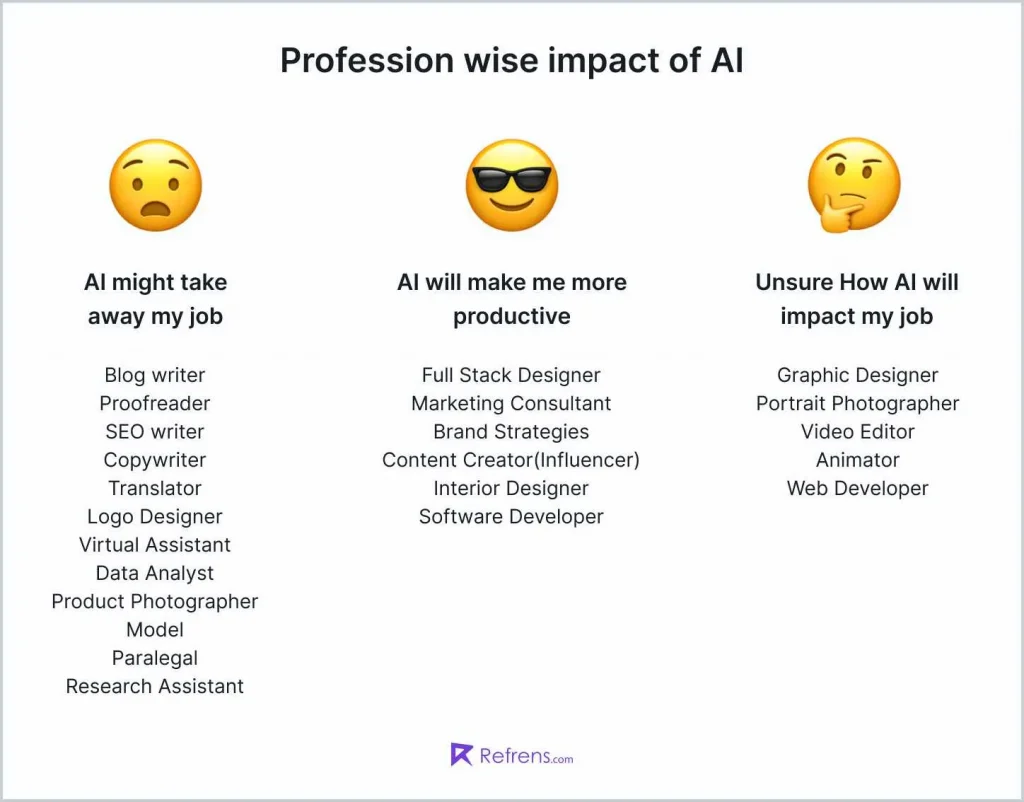
Interestingly, our survey also revealed that there were certain professions in which freelancers were still unsure about the impact of AI. These included video editing, animation, website development, portrait photography, and graphic design.
“AI is making a 1x engineer a 10x engineer, and a 10x engineer a 100x one”
Brijesh Agarwal, A software developer who recently turned into a freelancer
These findings suggest that there may be significant variation in how different types of work are likely to be impacted by AI and that more research is needed to fully understand these dynamics.
Linear Jobs Will Get Replaced Faster
If your work involves defined input, AI can do it faster and cheaper. Collaborative work with multiple stakeholders remains safe. Freelancing challenges include staying relevant and balancing automation with human collaboration.
For example, AI may replace a logo designer but it can’t replace a full-stack designer who has to continuously work alongside multiple teams. AI can replace a content writer, but it can’t replace someone who has to speak to multiple people to gather interesting real-world insights. It can replace an ad copywriter, but it will prove to be a force multiplier for a marketing strategist who knows the market inside out.
“If you look at the underlying pattern in the way AI is impacting all the jobs, you will notice that the jobs that are linear in nature will become redundant faster than the ones which are non-linear”
Naman Sarawagi, CEO, Refrens.com
Those who have a deep understanding of the market and can provide strategic insights will still be in demand in the age of AI.
Clients Are Also In A Conundrum
The impact of AI is not limited to freelancers, their clients are also in a conundrum. Clients are asking about legal implications for copyright infringement if freelancers use AI to complete the projects.
In our survey, we also asked freelancers if their clients were worried about the copyrightability of their AI-generated work. The responses were as follows:
Only a small percentage (7%) of freelancers reported that their clients explicitly forbid them from using AI tools due to concerns about copyright. However, a larger proportion (27%) indicated that their clients do express some worry about AI-generated work, but are ultimately okay with its use.
On the other hand, 22% of freelancers reported that their clients are not worried about the copyrightability of their AI-generated work. The majority of respondents (44%), however, said that they have not had this discussion with their clients at all.
It’s clear that while some clients are cautious about the use of AI tools in relation to copyright law, it’s not a major concern for most freelancers. However, it’s always a good idea to have open and honest communication with clients about any potential legal issues that may arise from the use of AI tools in their work.
Some clients have even started negotiating for a lower price when they know that a good amount of work will be done by AI only. As AI is becoming more accessible, it lowers the price point a freelancer can otherwise charge. Some freelancers are feeling that now they have to work even harder to make their work stand out to justify the price.
Needless to say, freelancers have a tough road to navigate.
Will AI Replace Freelancers?
(Or in general – will AI take away all our jobs?)
AI replacing all our jobs is a bit overstatement. But like any technological revolution, what it will definitely replace is – the scope of our current job. Basically, what machines did to blue-collar workers, AI will do for a lot of white-collar ones. And it will only take away our (current) jobs under a certain skill level.
Cost Trumps Quality
The general argument that often gets made on why AI will not replace many white-collar creative or admin jobs is – “AI will never be 100% there”
But the thing is, 80% good AI – which almost costs nothing – is better than humans which costs thousands of dollars. For companies looking to cut costs and improve margins, 80% is not just good – it’s great.
For example, Did Canva churn out better designs than a human designer? Not always. But it was good enough for hundreds of thousands of businesses to generate millions of social media posts. Could a designer have done it better? Yes. But cheaper & faster? No.
It is the same reason why companies use dumb chatbots to auto-reply on social media posts – rather than hiring customer support executives who can save them from public embarrassment.
Humans need feedback time, are not available 24×7, and cost a lot. AI tools are cheap, fast, and always available.
AI is like machines that replaced 100 weavers with one loom operator.
“But humans could do it 20% better!” – yeah, good luck with that.
The Silver Lining
When computers were invented, the concerns of jobs getting lost were also there because they were faster and more efficient than humans. While they replaced some mundane jobs, they also created millions of new jobs like software developer, website developer, SEO expert, and digital marketer.
Inventions are supposed to reduce inefficiencies. Street lighters used to walk on average 10 miles every day to light and distinguish street lamps. Electricity replaced these thankless jobs for them so they can do better ones. The same will happen with jobs like research assistants, copywriters, and others.
Blaming AI is like a horse carriage jockey blaming cars for taking away his job. It’s basically upto you if you want to stay behind with a horse carriage or you want to become a taxi driver – Your job will not be lost. It will be changed.
Expect the same with AI as new jobs like prompt engineers, chatbot creators, and so on get created.
The only problem, and a major one, is though – how many freelancers would be able to shift their career path?
Naman Sarawagi (CEO, Refrens) puts it very simply – “If you want to know if AI will replace your job or not, think about this: The way AI operates is – if you give it a specific input, it will give you specific output. The human part is to define the input, AI will do the rest. So, if your work is to just process the inputs someone gave you to produce a certain output, then your job might be at risk. But if your job requires strategic thinking and collaboration to produce an output – then it’s safe.”
Simply put, if your job is to churn out an article for a cent a word, it can be done by AI way faster and cheaper. But, if your job is to create a marketing strategy, then it’s hard to replace. The more complex the job is, the harder it is for AI to get it right.
Basically, whatever you were doing earlier, you will be doing it 1 level higher up now.
The Path Ahead For Freelancers
Steve Jobs used to call PCs the ‘bicycle of the mind’. It gave ordinary people the leverage to accomplish more, and the already ambitious ones the ability to take on projects they used to only dream of. Replace the word “PC” with “AI” and the argument still holds true.
There has never been a better time to be a freelancer or to start a one-person business. With every new tool and every new update, AI is reducing the time between idea to execution.
Every competent freelancer will eventually operate like a one-person agency. Whether it is coding, design, marketing, customer support, or copywriting – AI is set to make it 100x cheaper and more efficient.
For a lot of freelance copywriters, their work has basically been reduced to editing AI-generated outputs.
Some designers have started using Stable diffusion and Midjourney to design logos, layouts, posters, etc. in a fraction of the time; and some are creating prototypes with Midjourney to show to the clients during the concept phase. One designer who used to dread writing content for app prototypes is now doing it happily & easily with AI tools.
A software developer who works remotely thinks of AI as a smart colleague who has read all his code and has unlimited time to answer his questions. However, shadow AI poses a real threat these days, i.e.: applications and tools implemented and used without the explicit knowledge or control of an organization.
On a different note, It’s also important to point out that not every client is tech-savvy. Millions of small businesses will wake up to the AI revolution one day and will need a hand in navigating the space. This can generate opportunities for freelancers to offer generative AI services as AI experts.
For example, some freelancers have even started offering services to help clients create their own AI chatbots! Job posts for prompt engineers are also on the rise.

Ending Thought
“It has never been about humans Vs. machines or humans Vs. AI, it’s always about humans with tools Vs. humans without them” – Naman Sarawagi, CEO, Refrens.com
This report was published by Refrens – A Bangalore-based business operating platform for freelancers and agencies across the world. It has 150K+ users across 178 countries on its bookkeeping, lead management software, and online networking platform.
Refrens has raised funding from CRED founder Kunal Shah, Paytm founder Vijay Shekhar Sharma, Indiamart founder Dinesh Agarwal and Shaadi.com founder & Shark Tank judge Anupam Mittal among others.
